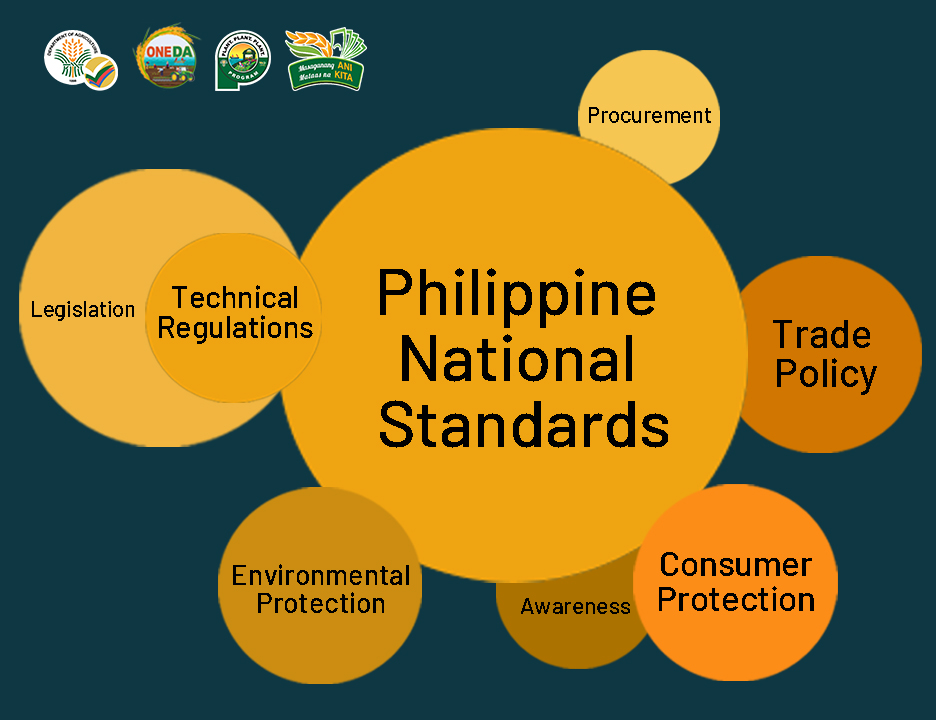
February 4, 2021. Standards are important not only in ensuring consumer safety but these are essential in promoting the competitiveness of agriculture and fisheries standards. Consistent with its mandate of developing and promoting agricultural and fishery standards, the Standards Development Division (SDD) of the DA-Bureau of Agriculture and Fisheries Standards (BAFS) has developed a total number of 307 PNS for agriculture and fishery (AF) products, tools, machinery, equipment, and structures since 2003. Majority of the PNS are related to crops for food and non-food (50%), followed by agriculture and fishery (AF) tools, machinery, equipment, and structures (21%), fish and fishery products (12%) and 10% for livestock and poultry products (Fig. 1). Further analysis of the adopted standards shows that more than half or 57% of these PNS are quality standards and the rest are food safety standards (43%) (Fig. 2).

Figure 1. Standards developed disaggregated based on commodity grouping

Figure 2. Percentage of developed PNS on Food Safety vs. developed PNS on Quality
BAFS is also committed to develop PNS which are harmonized with the regional and international standards, in particular the ASEAN and Codex standards, respectively. Harmonization with the international standards is one of the basic principles in standards development that aims to protect consumers’ health and to facilitate fair practices in food trade.
It is the commitment of the Philippines under the ASEAN Economic Community (AEC) to harmonize standards based on the work program of relevant ASEAN Sectoral Working Groups such as the ASEAN Sectoral Working Group on Crops (ASWGC), Livestock (ASWGL), and Fisheries (ASWGF), etc. As of date, 94% (68 out of the 72) ASEAN regional standards related to agri-fishery primary and postharvest products are already adopted as PNS.
For Codex, RA 106011 (Food Safety Act), Section 9 (Setting of Food Safety Standards) states that “DA shall set mandatory food safety standards based from standards of Codex where these exist and are applicable. Codex standards shall be adopted except when these are in conflict with what is necessary to protect consumers and when scientific justifications exist or based on risk assessment. Policies and procedures for the adoption of Codex standards as PNS shall also be established”. Codex standards within the mandates of DA-BAFS, 36% (44 out 123) have already been adopted. By 2025, the SDD of the DA-BAFS endeavors to adopt 100% of the relevant ASEAN and Codex standards as PNS to contribute to making the agriculture and fishery sector more globally competitive.
Standards play an integral part not just in promoting competitiveness of Philippine agriculture and fishery products but also facilitating fair trade with its trading partner countries through the harmonized standards. Through the years, BAFS together with its Technical Working Group (TWGs) for agri-fishery products and machinery, tools and equipment, continue to develop standards that ensure food safety, consumers’ protection, and improve quality trade among the trading partner countries. ###
